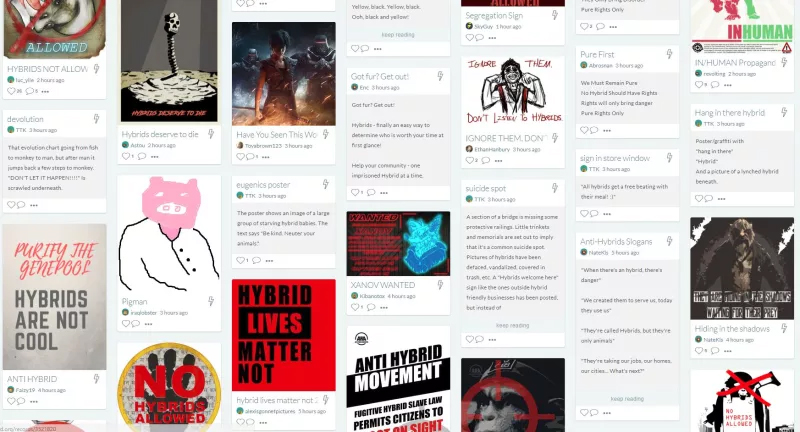Briefly about how Ubisoft is going to pay users for content for Beyond Good and Evil 2 and why the company needs it at all.
Recall that Ubisoft has launched the Space Monkey program — through it writers, musicians and artists can send content for BG&E2. HitRecord, specializing in the organization of creative collaborations, became a partner of the program.
HOW WILL CROWDSOURCING WORK?
A page for the Space Monkey Program has already been opened on the HitRecord website. Fans of the original game can offer their best practices for one of the categories, for example: religious music, space pirate radio stations, temple decoration, opposition art or anti—hybrid propaganda (in the world of BG &E, some of the characters are hybrids of humans and animals).

Other users will be able to comment and make changes to these assets — on HitRecord, you can track how a particular asset evolves and understand what contribution each user has.
Ultimately, the HitRecord team will select what best suits the game and send it to Ubisoft. If the development team uses the submitted content, its authors will be paid dividends.
WHAT AMOUNTS CAN THE AUTHORS COUNT ON?
HitRecord has only $50 thousand to pay for content for BG&E2. Apparently, we are talking about small payments. Their specific size will depend on the amount of user content that will enter the game.
Payments will be made in 2019, said the executive producer of the company Jared Geller (Jared Geller).
HitRecord Executive Producer
The HitRecord system encourages collaborations, says the company’s founder, the famous Hollywood actor Joseph Gordon-Levitt.
Founder of HitRecord
Initially, HitRecord distributes money between the team of authors for the project, but they can agree among themselves and redistribute these funds.
Note that HitRecord has been in existence since 2010 and during this time has already paid $ 3 million to its authors.
WHY IS UBISOFT DOING THIS?
Kotaku received a response from a Ubisoft representative, but it can hardly be called comprehensive.
He assured that the company wants to attract the community to its project, and not replace its artists and musicians, “who are among the best in the industry.”
The assets created by users, according to him, should make the world of the game more diverse, multicultural. This is especially true of the appearance of the main city in the game, which is called Ganesha.
IS THIS WAY OF GETTING CONTENT ETHICAL?
Such projects are called speculative work — a person works, but cannot guarantee that his work will be paid. Defenders of labor rights, for obvious reasons, often criticize such forms of earnings.
After the announcement of BG&E2 at E3, the author of the indie game Night in the Woods, Scott Benson, wrote a series of tweets in which he criticized Ubisoft’s approach: “The essence of speculative work is that you create some kind of thing for the company, and when you finish, the company decides whether to pay you or not, and if you pay, then how much. For them, it’s just a free job that will save them money, and you will only get what they want to pay you.”
Ok the essence of spec work is you create a thing for a company and after it’s finished the company decides whether to pay you or not, and if they do, how much to pay you. It’s just free work for them which saves them money and you get whatever they want to give you, if anything.
— Gravity BoneBone (@bombsfall) June 11, 2018
Выбирать подобный метод оплаты пользовательского контента было совершенно не обязательно, считает представитель NoSpec, организации по защите прав работников. По его мнению, Ubisoft следовало устроить конкурс портфолио, и нанять лучших авторов на полноценную проектную работу.
Именно в этом основной смысл критики в адрес Ubisoft. Нет ничего аморального в том, чтобы мотивировать своё комьюнити, призывать делать фанатский контент и награждать активных пользователей. Но компания выбрала для этого сомнительную схему, при которой сложно предсказать, будет ли оплата справедливой. Возможно, критики было бы меньше, если бы компания обещала пользователям не деньги, а, например, конкретные внутриигровые награды или упоминание в числе авторов.
Also on the topic:
- Battlers are one of the most common genres among the top—grossing games
- Finnish game studio raised $3.1 million
Source: Kotaku

